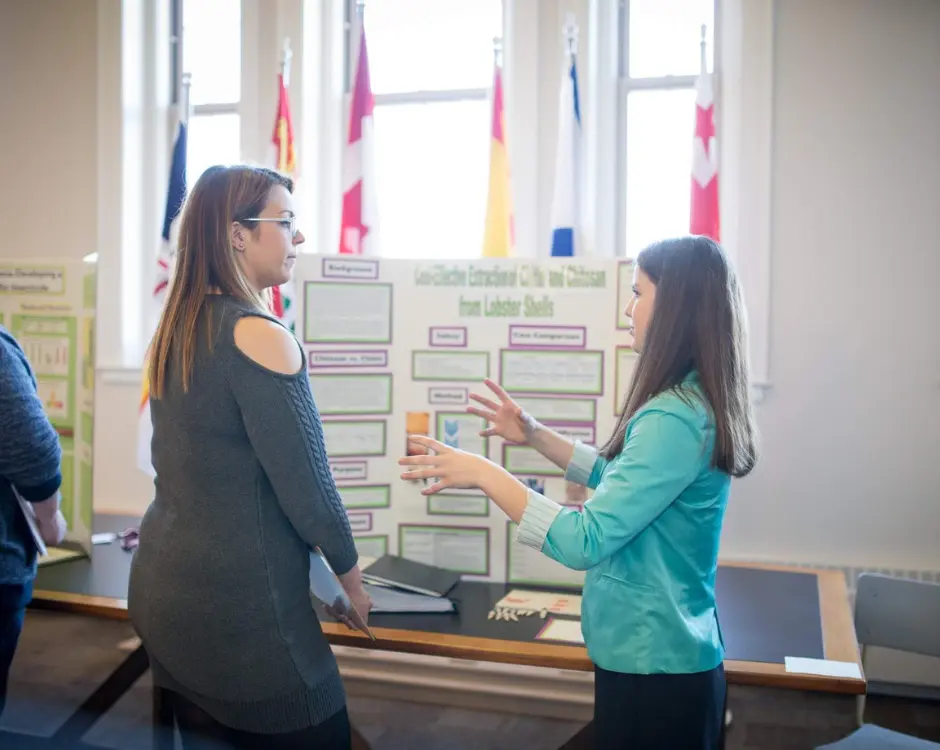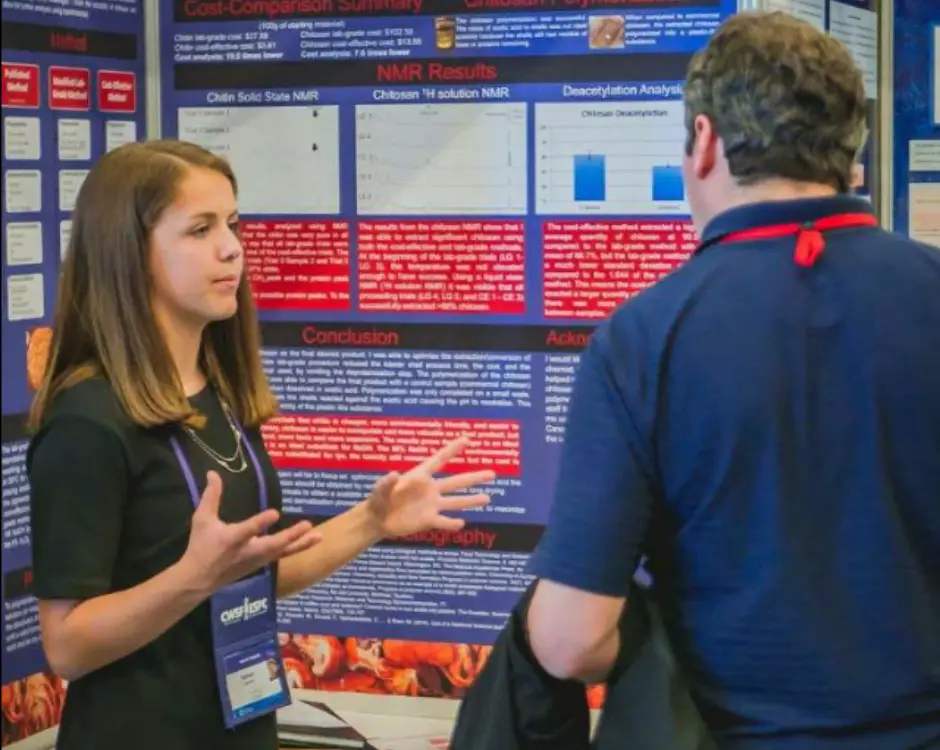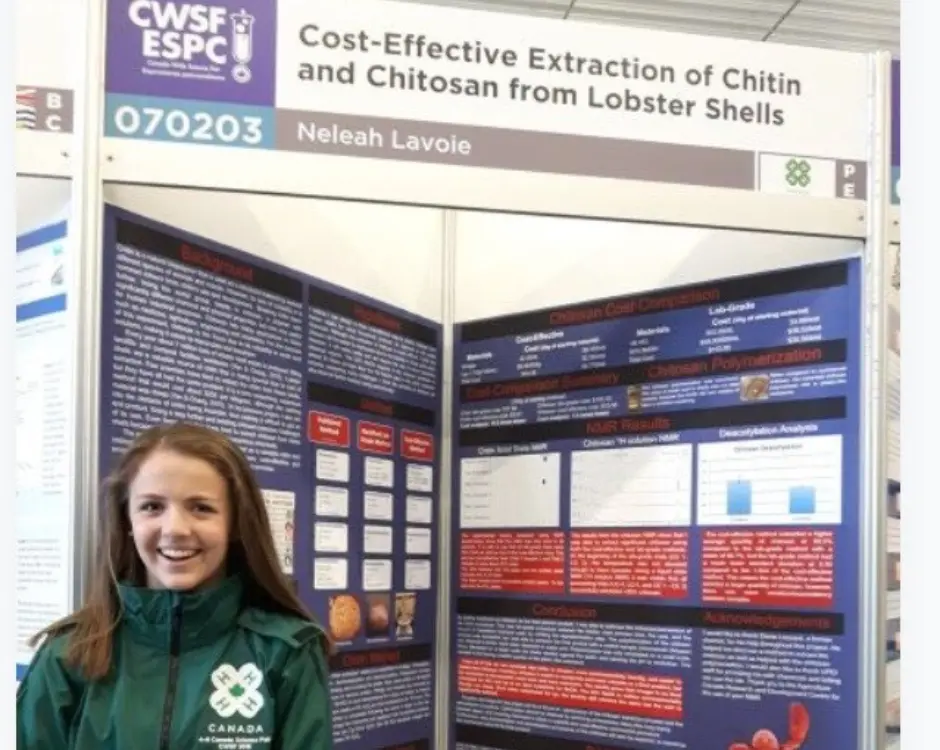In Science Fair (and Life!) Mistakes are How We Learn
By Neleah Lavoie, 4-H Canada Youth Advisory Committee Representative - PEI
The 4-H Canada Science Fair has shaped me as a person, a learner, and 4-Her. My three years of involvement has instilled in me a love for science and encouraged me to question the world around me. But, even more so, it’s showed me how to look at challenges as opportunities and not as obstacles. It’s also taught me to fearlessly pursue new knowledge and believe in myself even when things seem impossible.
But how do you get started? Picking an idea for a science project may be the hardest part. The key is to remember that there are no wrong ideas. My advice is to make a list of things that interest you or that you wonder about, and from that list, start to think of problems that you know exist within each interest.

The 4-H Canada Science Fair lets you see new places, learn new things, and meet new people!
Photo Credit: © 4-H Canada
The key to choosing a good topic is to try to answer a question that has not been answered before. Be creative, talk to people in your life, and don’t be afraid to use the internet. You want to formulate a topic that is as specific as possible. Once you have selected a topic and problem to investigate, don't be discouraged if the problem seems unsolvable or if you don’t know where to start. The first step is to research your topic. Learn as much as you can until you have the information to either develop a solution to the problem, or develop a plan to conduct an experiment to learn more about the problem.
The last science fair project I conducted was investigating the antiangiogenic activity of sprouts. Let’s talk about how I got to this topic. I knew I wanted to work with the blood-brain barrier and cancer. A family member was battling brain cancer, and I was inspired to learn about improving their treatment. I decided that I wanted to focus on drug development, and I took these ideas to a mentor of mine. With my creativity and his expertise, we decided that investigating the ability of sprouts to stop tumor growth would be a feasible start. I had no idea what I was doing, but I started to read. After reading through many articles, I had so many ideas, but no plan. I talked to industry professionals, and they helped me narrow my focus and come up with a testing protocol. Then I started the fun part – testing!

It’s easy to talk about a project when it’s something you’re passionate about!
Photo Credit: Courtesy of the Canada-Wide Science Fair
The thing about science is it goes wrong more than it goes right. Often, my experiments don’t work, or my results don’t make sense. My biggest piece of advice is to not give up. Continue to try new things. Learn more about your topic and do not be afraid of failure. Mistakes are how we learn in science.
The 4-H Canada Science Fair not only ignited my passion for science, it taught me the invaluable life lessons of resilience, creativity, and problem-solving. Through curiosity and the guidance of mentors, I learned that the world of science - full of successes and failures - was where I wanted to spend my career. Plus, there is nothing better than when you finally figure out the answer to your question!

The smile says it all!
Photo Credit: Courtesy of Neleah Lavoie
